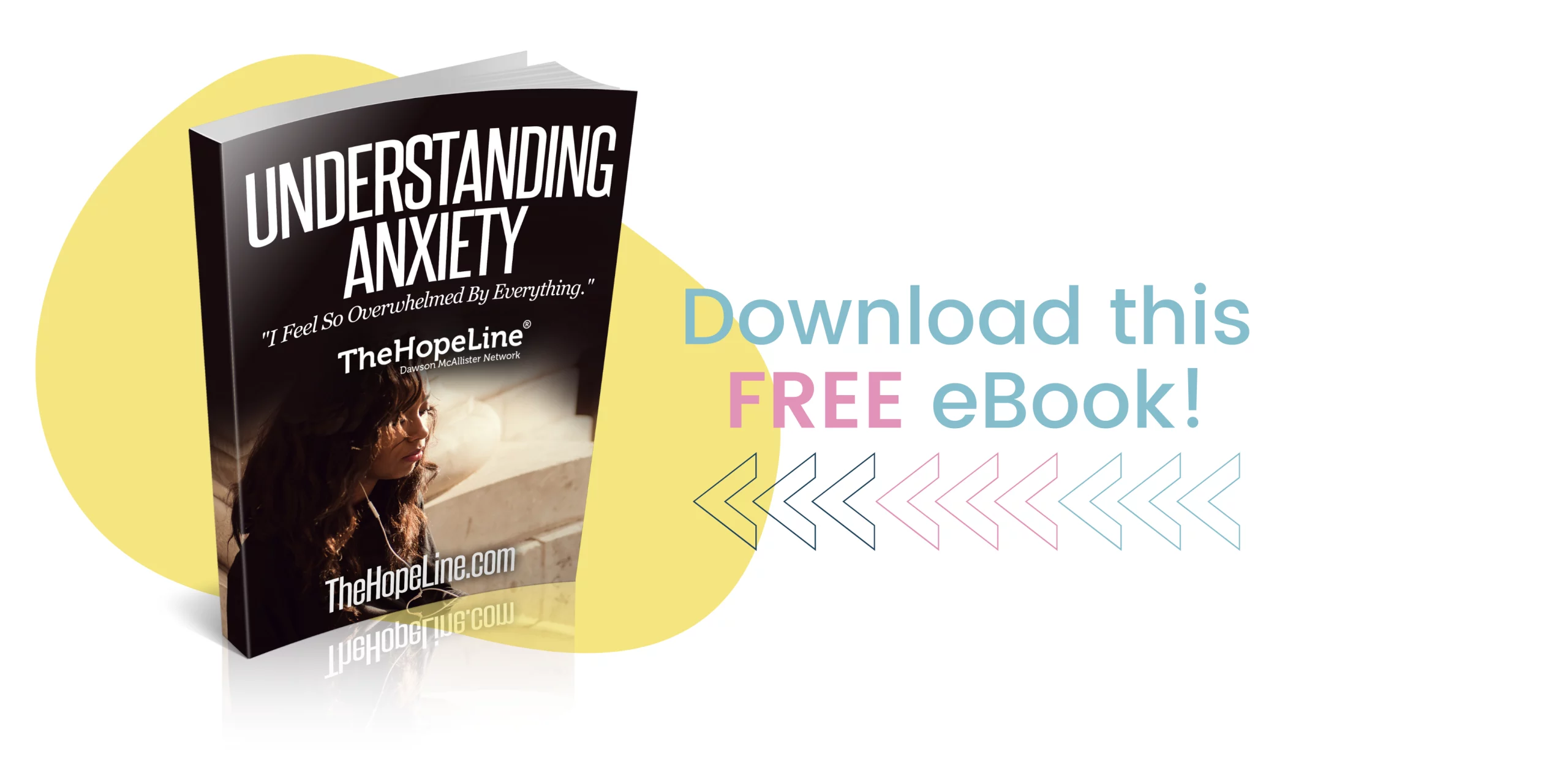Living with an Anxiety Disorder
Shelby wrote to us and said, "Living with an anxiety disorder (and one as complex as mine) you just have to learn to keep your mouth shut and keep everything bottled up inside because the second you let it out, you're labeled as crazy or out of control. It was to the point that if I cried, people worried about me. I felt alone, pushed into a corner and hid by my family."
This breaks my heart...the fact that she thought she needed to keep her feelings locked inside for fear of being labeled and judged. I know that many people struggling with an anxiety disorder feel just like Shelby. But Shelby knew she couldn't just keep her mouth shut. She knew she needed to talk about her feelings, and thankfully she found TheHopeLine. She said, at TheHopeline no one is writing down anything or judging me on what i say, I just get to speak. (Click here to read more of Shelby's story)
Do you know how to deal with anxiety?
Talking about your struggle with anxiety is important. Anxiety disorders are real and getting help is critical. Although it may feel like you are alone in this struggle, I want you to know that you are not. Statistics show that approximately 40 million Americans struggle with an anxiety disorder.
Regardless, I know there are still many mistaken ideas or stigmas surrounding anxiety disorders and these stigmas may keep you from seeking the help you need. Chris called into my radio show and shared this, "I started suffering from depression and I'm having anxiety problems now, and it caused me to lose my job. Now, my dad pretty much doesn't understand and he kind of disowned me over it and he's disappointed in me and I don't know how to make him understand what I'm going through."
Don't Let Stigmas Keep You From Seeking Help
I know it's hard when someone doesn't understand what you are going through, and if you've ever been told to just toughen up or snap out of it, I am sorry. But other people's misconceptions should not keep you from seeking the help that you need.
I also want to caution you about two things:
1.Don't let the stigma surrounding anxiety disorders create self-doubt and shame. Stigma doesn't just come from others. You may mistakenly believe that your condition is a sign of personal weakness or that you should be able to control it without help. When you think less of yourself because of your disorder and when you assume others will see you negatively because of your mental health, it's a self-induced shame.
2.Don't make excuses about getting the help you need. I talk to so many people struggling with anxiety and often when I encourage them to see a psychologist or a doctor or to consider medication, they respond with a lot of excuses. I say, Find a doctor. And they say Yeah, but...I say, there is a lot of options for medication. And they say, Yeah, but... I say, Find a support group. And they say, Yeah, but... I know it's hard, but don't fall into this trap. Be an overcomer rather than a victim. Take baby steps but DO something.
Be An Overcomer
I encouraged Joy in this way when she called into the radio show. After offering Joy a number of options she said, "I don't know. I don't think anything will ever really help." But by the end of the call, she was committed to being an overcomer.
Steps to Take to Help Anxiety
If you are struggling with anxiety, here are some things you should do:
- Get treatment. You may be reluctant to admit you need treatment, but treatment can provide relief by identifying what's wrong and reducing symptoms that interfere with your work and personal life. Treatment may include medication and medication is not a dirty word.
- Don't isolate yourself. Reach out to people you trust for the compassion, support and understanding you need. They can help you deal with your anxiety.
- Join a support group.
- Don't equate yourself with your illness. You are not an illness. You are so much more.
- Speak out. Consider expressing your experiences in a blog or school paper or send a letter to the editor. Your views might help instill courage in others facing similar challenges and educate the public about anxiety disorders.
If you don't know where to start seeking help, we've created a free eBook on Understanding Anxiety. Simply click this image for a free download.




I'm glad reading different situations from different comments on the comment box. My brother as autism. We love them so much. She is fragile that we do not let her hurt. As her sister, I'm searching for tips on how can I take care of her more.